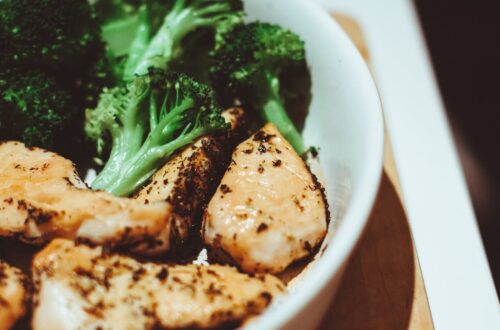
Natural Ways to Boost Your Immune System: A Complete Guide
Maintaining a robust immune system is more crucial than ever.
With increasing exposure to pollutants, stress, and infectious agents, our bodies need all the support they can get to fend off illnesses and stay healthy.
Fortunately, there are several natural ways to boost your immune system that are both effective and accessible.
This comprehensive guide will delve into the best practices and strategies to enhance your immune function naturally.
Understanding the Immune System
Before diving into natural immune-boosting methods, it’s essential to understand how the immune system works.
The immune system is a complex network of cells, tissues, and organs that work together to defend the body against harmful pathogens. It comprises two main components:
- Innate Immunity: The body’s first line of defense, which includes physical barriers like the skin and mucous membranes, as well as immune cells that attack invaders.
- Adaptive Immunity: This involves a more targeted response, where the body produces specific antibodies to combat pathogens it has encountered before.
Both components must function optimally to maintain overall health and prevent disease.
The Role of Nutrition in Immune System
A balanced diet rich in essential nutrients is fundamental to a strong immune system. Here are some key nutrients and their sources:
- Vitamin C: Known for its immune-boosting properties, Vitamin C stimulates the production of white blood cells. Citrus fruits, strawberries, bell peppers, and broccoli are excellent sources.
- Research: A study published in the Journal of Clinical Medicine found that Vitamin C supplementation reduces the duration of common colds by 8% in adults and 14% in children.
- Vitamin D: This vitamin enhances pathogen-fighting effects of monocytes and macrophages. Sun exposure, fatty fish, and fortified dairy products can help maintain adequate levels.
- Research: According to the BMJ, Vitamin D supplementation was shown to reduce the risk of respiratory infections, especially in those with a deficiency.
- Research: According to the BMJ, Vitamin D supplementation was shown to reduce the risk of respiratory infections, especially in those with a deficiency.
- Zinc: Zinc is critical for immune cell function and signaling. Foods rich in zinc include oysters, beef, pumpkin seeds, and lentils.
- Research: A meta-analysis in the American Journal of Clinical Nutrition highlighted that zinc supplementation could reduce the duration of cold symptoms by about 33%.
- Probiotics: These beneficial bacteria improve gut health, which is closely linked to immune function. Yogurt, kefir, sauerkraut, and kimchi are probiotic-rich foods.
- Research: A study in the Journal of Family Practice indicated that regular consumption of probiotics could decrease the incidence and duration of upper respiratory tract infections .
Lifestyle Practices for Immune Support
Beyond diet, various lifestyle practices can significantly impact your immune health. Here are some effective strategies:
- Regular Exercise: Moderate physical activity can boost the immune system by promoting good circulation, which allows immune cells to move through the body more freely.
- Research: The American Journal of Preventive Medicine published findings that regular moderate exercise could reduce the risk of acute respiratory infections by up to 40%.
- Adequate Sleep: Sleep is crucial for immune function, as it allows the body to repair and regenerate. Aim for 7-9 hours of quality sleep per night.
- Research: A study in Sleep Health found that individuals who slept fewer than six hours a night were more likely to catch a cold than those who slept seven hours or more.
- Stress Management: Chronic stress can suppress immune function. Techniques such as meditation, deep breathing, and yoga can help manage stress levels.
- Research: According to a review in the Journal of Immunology Research, stress management techniques can improve immune function and lower the incidence of stress-related illnesses.
- Hydration: Staying hydrated helps all bodily functions, including the immune system. Water is essential for the production of lymph, which carries white blood cells and other immune system cells.
Herbal Remedies and Supplements
Certain herbs and supplements are known for their immune-boosting properties. Here are a few worth considering:
- Echinacea: This herb is often used to prevent and treat colds. It may help increase the number of white blood cells.
- Research: A meta-analysis in The Lancet Infectious Diseases showed that echinacea could reduce the risk of recurrent respiratory infections.
- Elderberry: Elderberry has been used for centuries to treat infections. It is believed to boost the production of cytokines, proteins that help regulate immune responses.
- Research: A study published in Nutrients found that elderberry supplementation could significantly reduce the duration and severity of cold symptoms.
- Garlic: Known for its antimicrobial and immune-boosting properties, garlic can enhance the function of immune cells.
- Research: A clinical trial in Advances in Therapy found that garlic supplementation could reduce the incidence of colds by over 60% .
Conclusion
Boosting your immune system naturally involves a combination of proper nutrition, regular exercise, sufficient sleep, stress management, and strategic use of herbs and supplements.
By incorporating these practices into your daily routine, you can enhance your body’s ability to ward off illnesses and maintain overall health.
Remember, while natural methods can significantly support your immune system, they are not a substitute for medical treatment.
Always consult with a healthcare professional before making any significant changes to your health regimen.
References
- Journal of Clinical Medicine, “Vitamin C and Immune Function,” 2017.
- BMJ, “Vitamin D Supplementation to Prevent Acute Respiratory Tract Infections,” 2017.
- American Journal of Clinical Nutrition, “Zinc for the Treatment of the Common Cold,” 2012.
- Journal of Family Practice, “Probiotics and Upper Respiratory Tract Infections,” 2015.
- American Journal of Preventive Medicine, “Exercise and Respiratory Infections,” 2009.
- Sleep Health, “Short Sleep Duration and Common Cold Incidence,” 2015.
- Journal of Immunology Research, “Stress Management and Immune Function,” 2018.
- The Lancet Infectious Diseases, “Echinacea for the Prevention of Recurrent Infections,” 2015.
- Nutrients, “Elderberry Supplementation and Respiratory Health,” 2016.
- Advances in Therapy, “Garlic Supplementation and Cold Incidence,” 2001.
By following these guidelines and incorporating these practices into your lifestyle, you can naturally boost your immune system and improve your overall well-being.




